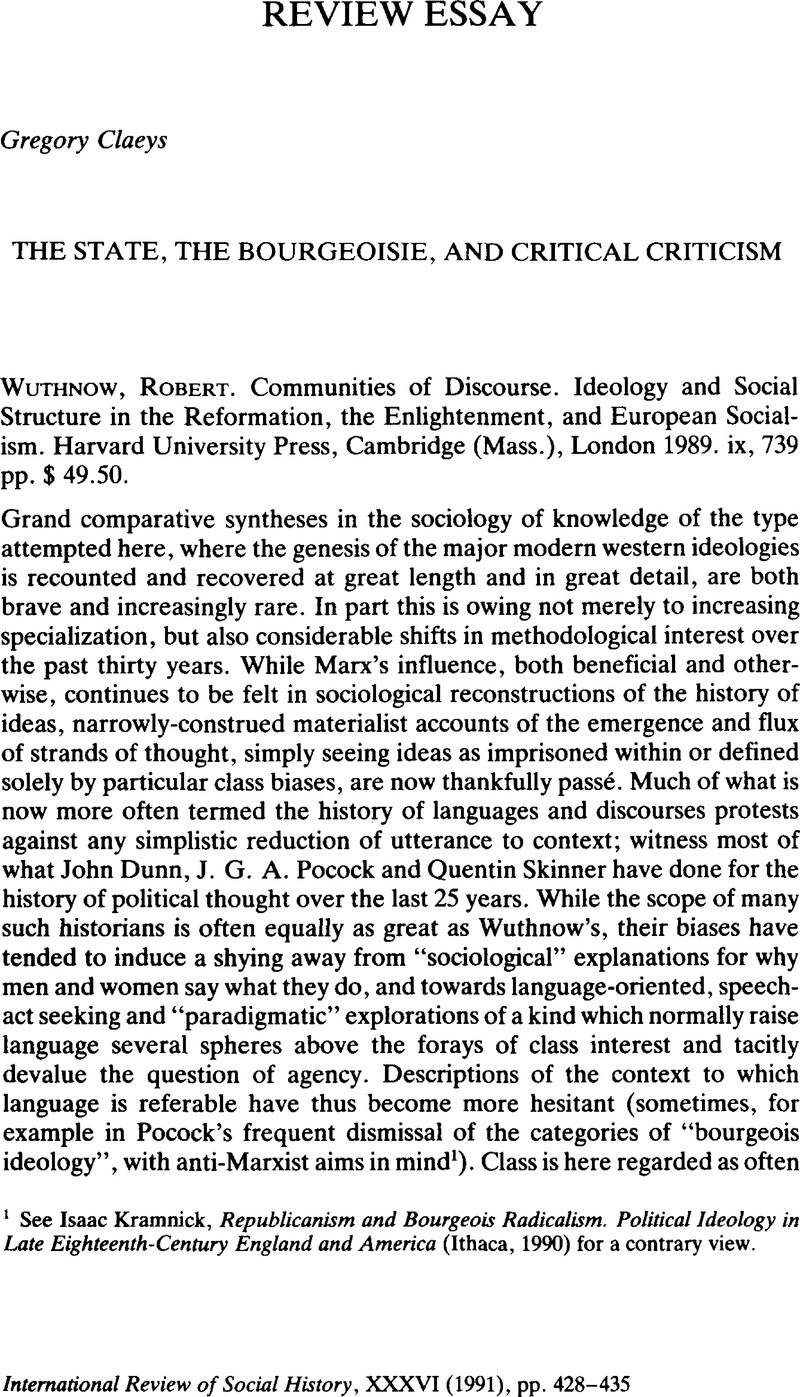No CrossRef data available.
Published online by Cambridge University Press: 18 December 2008

1 See Kramnick, Isaac, Republicanism and Bourgeois Radicalism. Political Ideology in Late Eighteenth-Century England and America (Ithaca, 1990) for a contrary view.Google Scholar
2 Jones, Gareth Stedman, Languages of Class. Studies in English Working Class History 1832–1982 (Cambridge, 1983), pp. 90–178.Google Scholar
3 All at once: “Luther, Voltaire, Marx […] were able to formulate critical ideological discourse by thematizing certain features of their social environments, setting them in opposition to alternative visions of cultural authority, concretizing both by drawing on conflicts evident in the societies in which they wrote, and supplying figurations of behavior that mediated between present and idealized realities” (p. 15).Google Scholar